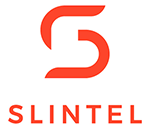Our portfolio company Slintel recently closed its Series A round; the round was led by GGV Ventures, with participation from existing investors (us, Accel and Sequoia). We partnered with Slintel about 2 years ago, in the middle of 2019, and our excitement levels about the business have only increased since then. In this short span of time, the business has made significant progress –
- ARR is up ~20X
- ACVs are up ~2X
- Welcomed on-board (more) world-class investors – GGV, Sequoia
We feel Slintel is a category-defining company in the making, and this post is about our learnings from watching this journey closely from the touchlines.
1. There’s No Substitute for ‘Founder Gut’
Sometime late-2019 / early-2020, Deepak started talking about the concept of ‘buying intent’ as the cornerstone of what Slintel was likely to be about. For context, back then, we were a company which had raised a pre-seed round driven predominantly by our differentiation around technographics – the segmentation of businesses based on the technology they use. We were a fledgling entity, with a strong ingoing hypothesis around the importance of technographics. In that chaos, Deepak managed to identify – correctly, as it turns out – that the world was moving in a direction where sellers of B2B products would want to identify buyers earlier and earlier in their buying journey; the idea is not to win the race, but to pre-empt the race from even happening!
Building a business around technographics means your moat – if any – is likely to be proprietary data. Providing buying intent means a higher level of defensibility – not only do you have proprietary data, but you are also able to intelligently combine it with other data sources to provide proprietary insights. As one can imagine, selling insights is a different business than selling data. Deepak’s early identification of the importance of intent – something which took us a few more months to fully appreciate – allowed Slintel to change direction quickly and save on the most valuable commodity for an early start-up, time.
2. Building Leadership Capacity Ahead of Time Keeps Growth Going
From Day 1 of working with Deepak and Rahul, we found them hungry to onboard and empower talent. Slintel already has dedicated, and very capable, functional leaders for each important function in the business – marketing, sales, customer success, product, technology. Some of these functions have more than one leader.
In our experience, it’s rare for a start-up at this stage to have such a complete “founders minus one” team. It’s also a big reason why the company has managed to seamlessly transition from one growth curve to the other.
It’s worth pointing out that there has been a relentless focus on going after A-players in this process. In some cases, that meant very long search times, often more than 6 months. What this means is it takes at least a year, often more, to truly get these leaders going. All the more reason to hire ahead of time!
3. Learning Agility is a Superpower
One of the things we look for in founders we work with is learning agility (more on that here). At the risk of Rahul (from Stellaris, not Slintel) smugly telling us i-told-you-so, it’s hard to overemphasize the importance of this trait, especially at the early stages while operating in a dynamic market. There are two critical aspects of the business where Deepak had no prior experience, but that are humming along quite nicely at the moment
- Product: neither Deepak nor Rahul (from Slintel this time) had prior product management experience. However, they learnt rapidly – some from first principles, some from speaking with other people, and some from mistakes – and invested effort in hiring. Consequently, our product discussions today are incredibly structured and deep, from being relatively chaotic 2 years ago.
- Inbound demand generation: Deepak came with a strong sales background from his past roles. However, most of them involved an outbound demand generation motion. Slintel belongs to a product category where people search proactively, which makes it very amenable to inbound demand generation. Even though Deepak’s outbound engine was working well, he understood the need for building an inbound engine, and learnt from scratch to get the same going in a very efficient fashion.
4. Data Matters
In a DaaS business, both the quality and quantity of data matters. If you have gaps vis-a-vis competition, you better pick them up fast. Slintel is no different.
This is not necessarily rocket science when one thinks about it, since data is the core product in a DaaS business. However, what this also means is your MVP will differ as you target different types of customers e.g. based on geography or industry. While the underlying software workflows may be the same, you’d need a different set of data to get customers flocking to your door. Slintel started off with a focus on recruitment as a function, and gradually built a base level of data for different sets of customers. Today, Slintel gets customers from geographies such as LatAm, and across the entire gamut of industries.
5. What Helps Your Customers Sell Better, Sells Well
Over the last decade, our team has evaluated and backed a large number of enterprise businesses. These have spanned different verticals and horizontals. One can broadly define value proposition of enterprise businesses into 4 buckets:
(i) You can sell more i.e. higher revenue
(ii) You can reduce direct costs e.g. inventory reduction
(iii) You can increase productivity e.g. automation
(iv) You can reduce risk e.g. regulatory compliance
“You” in all cases refers to the customer. It is no surprise that #1 is the easiest category to sell. Even more so if you are in the direct line of money, i.e. your product fits directly in the customer acquisition funnel. In the case of Slintel, that is true as well – it helps their customers identify highest probability prospects. For Slintel, this has meant a shorter sales cycle. We are discovering, to our positive surprise, that pricing, and therefore ACV, can still go up.
To reiterate, Slintel is still early in it’s journey of redefining how B2B sales happen, one that we look forward to with great excitement. Onwards and upwards!
PS: in a prior post, we discussed early learnings about building DaaS businesses in general, also from our experience with Slintel.

